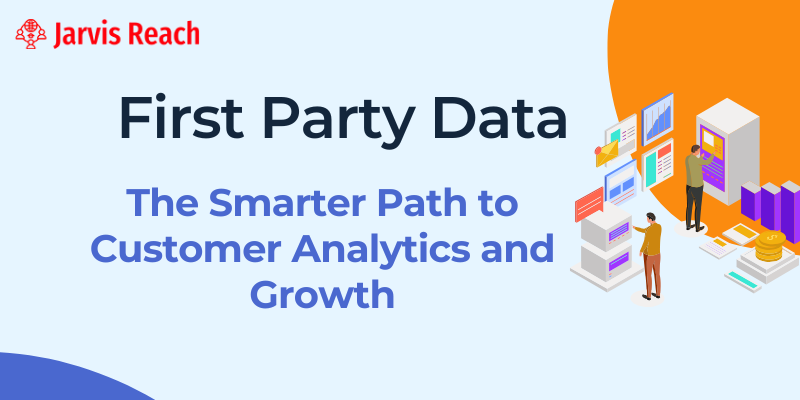The Secret Behind Every Successful E-commerce Brand? Knowing Their Customers—Deeply
Let’s be honest today’s e-commerce landscape feels like a digital jungle. Between endless ads, algorithm shifts, and rising acquisition costs, most brands are scrambling for attention. But the leading players the Amazons, the Nikes, the Warby Parkers of the world seem to know their customers in ways that feel almost… psychic.
What’s their secret weapon? First party data.
And no, it’s not some fancy marketing buzzword. It’s the foundation of every truly personalized customer experience you’ve ever had online.
What Exactly Is First Party Data (and Why Does It Matter So Much)?
In simple terms, first party data is the information your brand collects directly from customers through website visits, purchases, app interactions, emails, surveys, or loyalty programs. It’s clean, consent-based, and incredibly valuable because it comes straight from the source: your audience.
Unlike third-party data that’s being phased out with cookie restrictions, first party data lets you build real relationships rather than relying on rented ones.
Many top brands also pair this with zero party data the kind of information customers voluntarily share about their preferences, interests, and intentions. Think of those “Help us personalize your experience” quizzes on fashion sites or skincare brands asking about your skin type. It’s not just engagement; it’s strategic insight.
When done right, both first party and zero party data turn casual visitors into loyal brand advocates.
How Leading E-commerce Brands Put First Party Data to Work
Let’s peek inside the playbook of some of today’s most data-savvy e-commerce players.
1. Nike: Building Communities, Not Just Customer Lists
Nike doesn’t just sell shoes it builds a movement. Every time someone uses the Nike Run Club app or customizes a sneaker, Nike captures first party data tied to user behavior and preferences.
Instead of generic ads, Nike uses CRM enrichment and data enrichment to refine their profiles understanding not just who the customer is, but what drives them. The result? Highly personalized recommendations, timely follow ups, and outreach emails that actually feel human.
2. Sephora: The Art of Zero Party Data in Action
Sephora’s Beauty Insider quizzes are a masterclass in zero party data collection. When customers share their skin type or beauty goals, Sephora gains valuable, voluntary insights.
Pair that with consent management tools that give customers full control over their data, and you’ve got a formula for trust. Their marketing feels less like a pitch and more like a beauty consultation because it’s powered by information customers chose to give.
3. Amazon: Precision at Scale Through Data Enrichment
No surprise here Amazon runs on data. But what makes their approach so powerful is how they layer first party data with intelligent data enrichment to predict needs before you even realize them.
For example, if you bought a new laptop, their system might trigger follow ups recommending compatible accessories, or send an outreach email for extended warranties. It’s frictionless, relevant, and eerily on-point.
The Backbone of Every Winning Strategy: Trust and Transparency
If there’s one thing the modern consumer values more than convenience, it’s privacy. That’s why the best e-commerce brands don’t just collect data they earn it.
They use consent management platforms to ensure customers know exactly how their information is being used. They provide opt-ins, explain the value exchange clearly, and make opting out just as easy.
This transparency turns data sharing from something creepy into something collaborative. Customers feel empowered and brands get better insights in return.
Bringing It All Together: What This Means for Your Future in Tech
If you’re exploring a career in IT or digital marketing, understanding first party data is no longer optional it’s essential. The future belongs to professionals who can connect the dots between data enrichment, CRM systems, and customer experience.
Think of it like this: the brands winning today aren’t just collecting data; they’re interpreting human behavior.
As technology evolves and privacy laws tighten, the ability to balance personalization with ethics will define the next generation of digital leaders.
Final Thoughts: Build for Trust, Not Just Transactions
The smartest e-commerce brands have already realized this truth first party data isn’t about collecting more, it’s about collecting better.
Start small. Focus on transparency. Respect consent. And build systems that treat every data point as a reflection of a real person, not just a number.
Because at the end of the day, trust is the one metric you can’t fake and it’s the one that keeps customers coming back.



